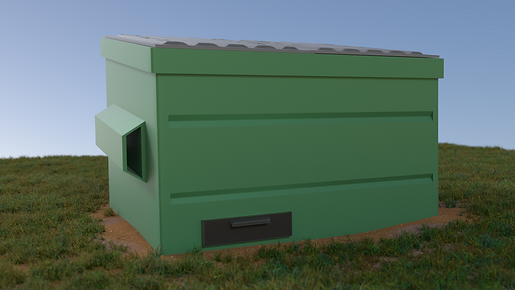

Wasteless
An Urban Composter




Anthropogenic climate change is the greatest problem currently facing the world, inducing sea level rise, increased temperatures, severe storms, crop failures, and ecological degradation. Methane, the most potent greenhouse gas contributing to climate change, enters the atmosphere from hydraulic fracturing, agricultural land use change, and many other sources. Landfills emit significant quantities of methane when organic matter, like food waste, is deposited concurrently with inorganic matter. Instead of biologically degrading, this organic matter becomes an environmental hazard, releasing more methane than can be absorbed by natural sinks
Wasteless uses an Urban Composter to intercept food waste before it enters landfills, minimizing a major source of methane. Composting transforms food waste into nutrient-rich, fertile soil, using technological or natural processes. However, traditional compost piles attract rodents and release unpleasant odors, requiring 2-4 months to produce usable soil, and deterring many companies from composting their unused food. Despite these drawbacks, major cities including San Francisco, Chicago, and New York enforce mandatory composting ordinances, without providing facilities for this purpose.
Wasteless's Urban Composter uses a dumpster-style interface with innovative in-vessel composting technology to enable urban businesses to compost their organic waste. This accessible and easy-to-use device promotes sustainable waste disposal and allows restaurants and other organizations to comply with composting laws. Wasteless is currently developing a modified variant on existing composting technologies that will minimize organic waste and corresponding methane emissions.


